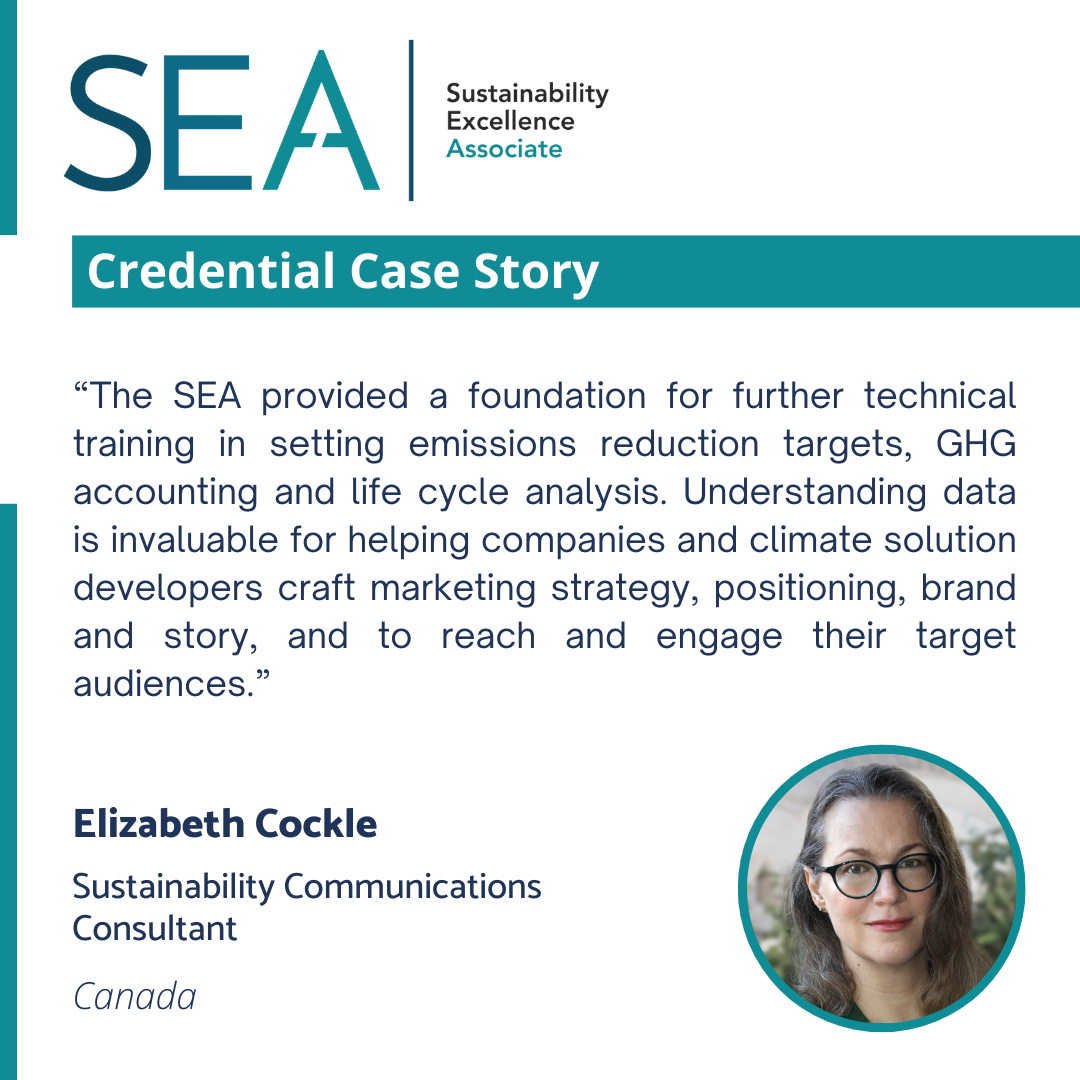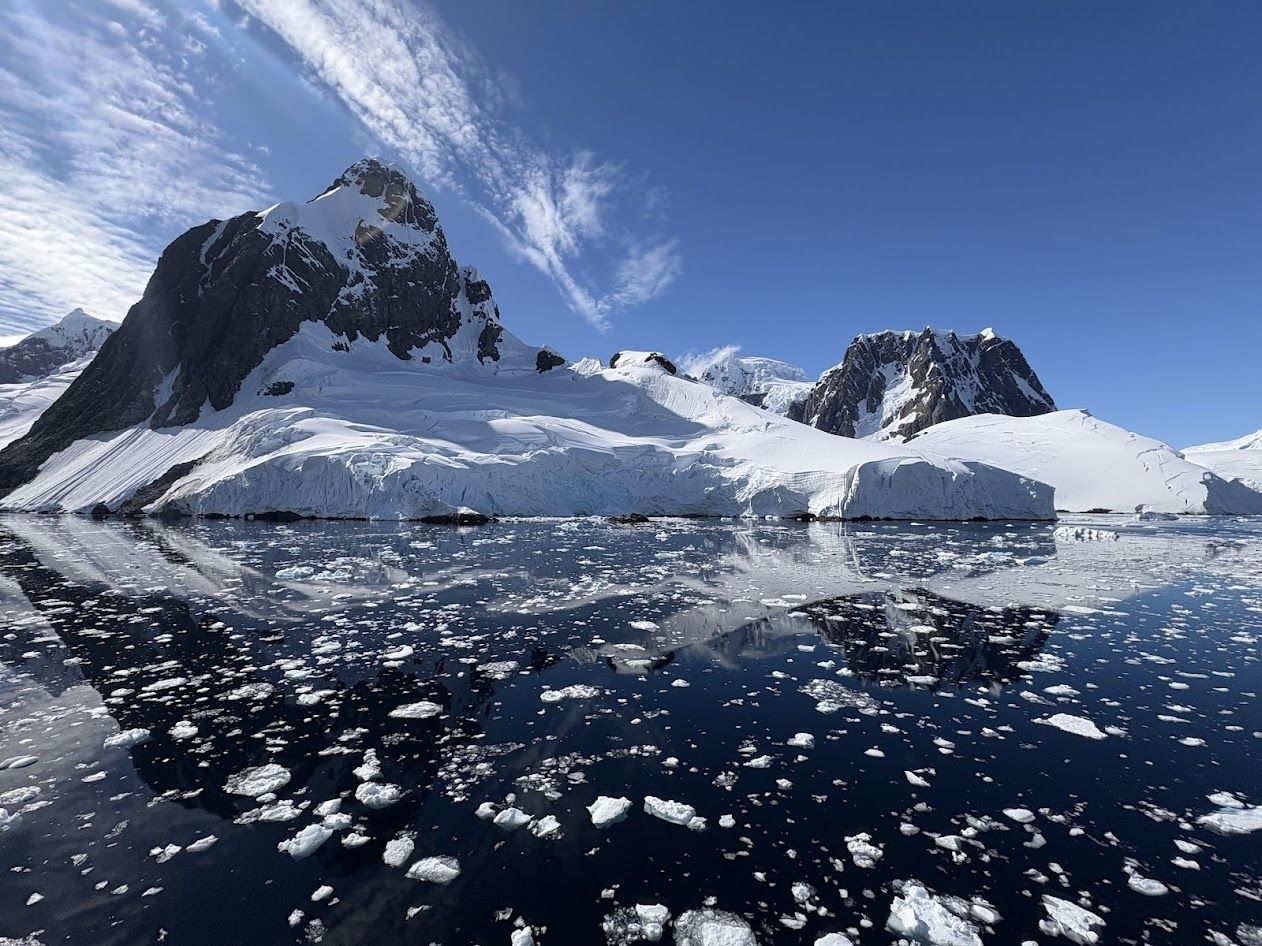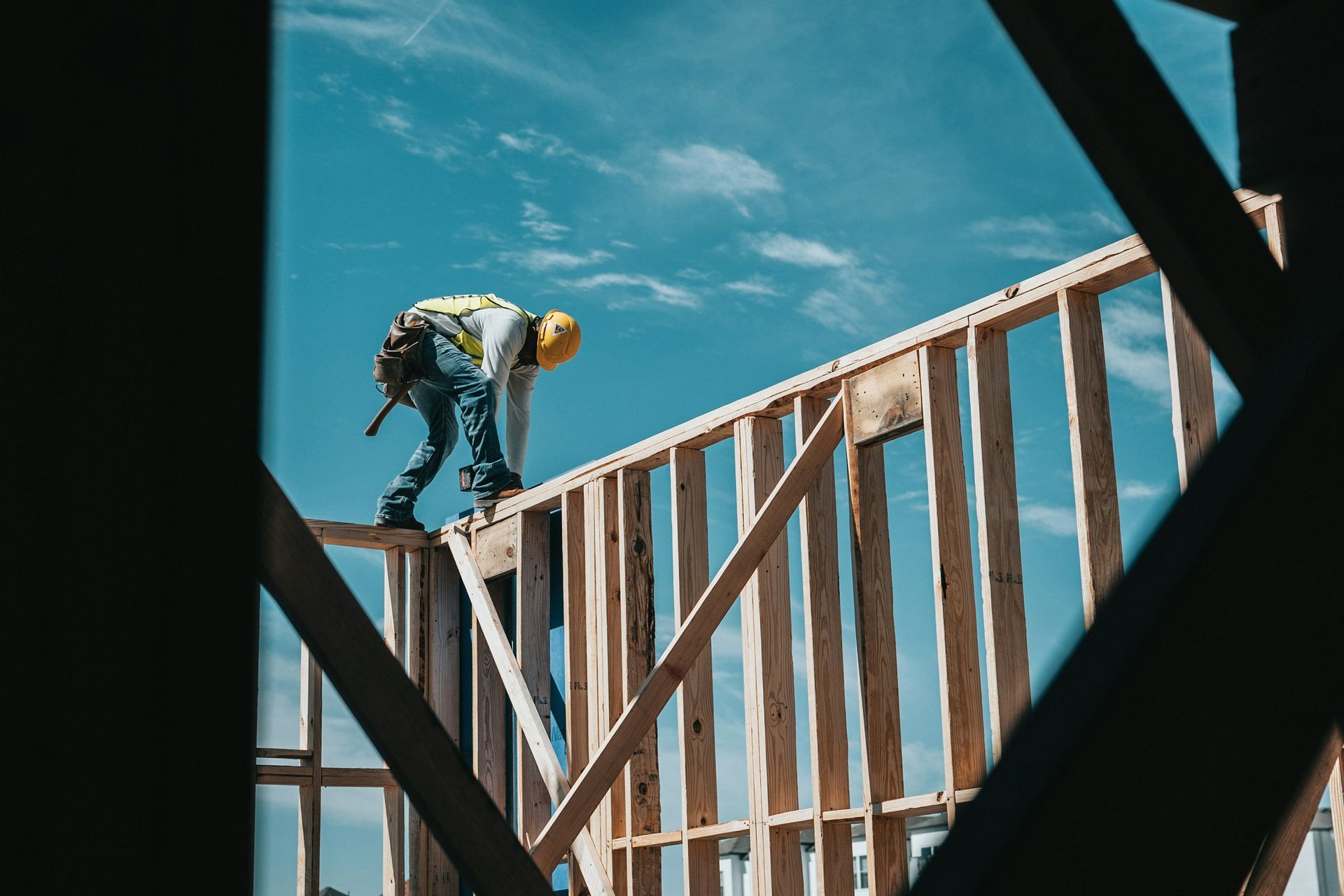What brought you to this moment in your career where the Sustainability Excellence Associate (SEA) made sense for you?
Growing up, I was the weird kid whose school lunches were packed in rinsed-out milk bags and empty cookie bags because my mom was passionate about reducing waste. I also loved writing stories. So it made sense that environmental purpose and storytelling would shape my career.
As a communications professional, I have worn many hats: scientific and medical editor, professional services marketer, back-cover copywriter for romance novels. Throughout these shifts, I kept finding my way to sustainability-related projects, such as editing watershed management plans for Toronto and Region Conservation Authority, creating a content marketing campaign for a restoration company on protecting homes and commercial property from climate disasters, and editing reports on the financial impacts of climate change on provincial infrastructure, which introduced me to the critical work of the Intergovernmental Panel on Climate Change.
I was motivated to pursue the SEA by realizing I want my career to more deeply align with my values and interests. My most fulfilling role was working as a communications consultant for an engineering firm specialized in decarbonization retrofits. I really enjoyed wrapping my head around how chillers and heat pumps function, and how HVAC systems in hospitals, office buildings and across campuses can be optimized to cut energy costs while also significantly reducing GHG emissions. Complex information like this must be distilled into digestible content for non-engineers and other stakeholders to build the business case for a deep energy retrofit. The same applies for any sustainability initiative or climate solution.
How are you putting the knowledge, skills, and ability demonstrated in the SEA to work in your career (or work) today?
Through the SEA I learned the concepts, trends and history of sustainability, which is essential for demonstrating broad climate fluency. This knowledge means I can communicate the benefits of corporate sustainability initiatives and speak confidently with clients, subject matter experts, stakeholders and at business events—including about the alphabet soup of reporting frameworks (GRI, CDP, IFRS S1/S2, SASB, SDG, TCFD/TNFD).
As well, the SEA provided a foundation for further technical training in setting emissions reduction targets, GHG accounting and life cycle analysis. Understanding data is invaluable for helping companies and climate solution developers craft marketing strategy, positioning, brand and story, and to reach and engage their target audiences. Plus I can nerd out with data people.
The SEA opened my eyes to the social justice aspects of sustainability and how addressing societal inequity and unequal distribution of resources contributes to a greener, better future. Recently I’ve had opportunities to assist a non-profit that helps veterans adjust to civilian life, and to consult on and contribute to We’ve Got Some Things to Say: Reshaping Narratives Around Sexual Violence, an anthology published by Amherst Writers & Artists Press.
For those starting out in the sustainability field, what advice do you have for them?
For those new to sustainability, stay curious and keep learning. Stay updated on emerging research, technoLearn as much as you can, through courses, podcasts, books, newsletters. The information is out there, and technologies are constantly evolving. Green skills are becoming embedded in job titles that don’t necessarily contain “sustainability.”
Understand how sustainability initiatives are tied to revenue. As certain industry language falls out of favour due to political changes, focus on how energy efficiency saves money, progress and transparency strengthen brand value, and a resilient supply chain is good for business. Also keep in mind that doom-and-gloom messaging incites fear and avoidance. Inspire action by emphasizing hope and benefits.
Get involved with ISSP. The monthly webinars, working sessions and networking events are excellent ways to stay current and connect with members all over the world. If you plan to earn the SEA credential, I highly recommend joining a study cohort. The group discussions and extra content made a huge difference, as did the community. Shout-out to my super-talented, super-committed cohort members, who are going on to do great things!




